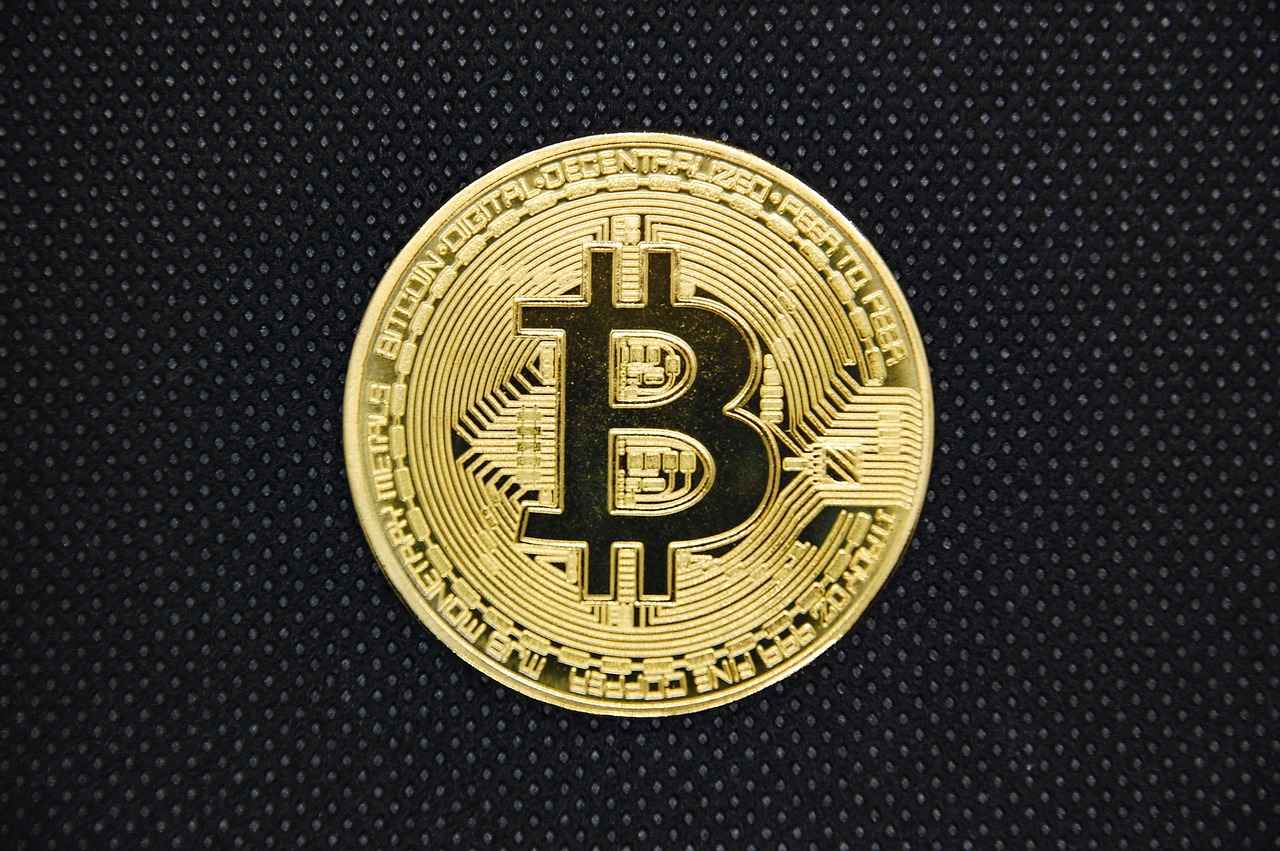This article delves into the Ocean Token, examining its functionalities, market potential, and broader implications within the cryptocurrency ecosystem. By analyzing various aspects, we aim to provide a comprehensive understanding of this digital asset.
What is Ocean Token?
The Ocean Token is a utility token integral to the Ocean Protocol, designed to facilitate the sharing and monetization of data. It enables users to engage in decentralized data exchanges, allowing both data providers and consumers to transact securely and transparently. This functionality is essential for grasping the token’s role in the evolving blockchain and data economy.
How Does Ocean Protocol Work?
Ocean Protocol operates on the principles of decentralization, providing a secure platform for data exchanges. It allows data providers to publish their datasets while maintaining control over their data. The protocol employs smart contracts to ensure that transactions are executed securely and transparently, enhancing trust among participants. This decentralized approach not only empowers data owners but also fosters a new economy where data can be bought and sold like any other commodity.
Decentralized Data Marketplaces
One of the standout features of Ocean Protocol is its ability to create decentralized data marketplaces. These marketplaces enable users to buy and sell datasets directly, transforming the way data is valued and accessed across various industries. By eliminating intermediaries, Ocean Protocol reduces costs and increases efficiency, allowing for a more dynamic data economy.
Data Providers and Consumers
In the Ocean Protocol ecosystem, a symbiotic relationship exists between data providers and consumers. Data providers can monetize their datasets, while consumers gain access to valuable information that can drive innovation and decision-making. This mutual benefit encourages more participants to join the ecosystem, enhancing its overall value and utility.
Smart Contracts and Data Sharing
Smart contracts play a pivotal role in the Ocean Protocol, facilitating secure transactions and ensuring that data sharing is both transparent and efficient. These contracts automate processes and enforce agreements, which minimizes the risk of disputes and enhances trust among users. As a result, participants can engage with confidence, knowing that their transactions are safeguarded by blockchain technology.
Tokenomics of Ocean Token
Understanding the tokenomics of Ocean Token is crucial for evaluating its investment potential. The token has a defined supply and distribution model, which influences its value and market dynamics. Economic incentives are built into the ecosystem, rewarding users who participate actively, whether by sharing data or engaging in governance. This structured approach fosters a sustainable environment for growth and adoption.
What Are the Use Cases of Ocean Token?
Ocean Token serves multiple purposes within the Ocean Protocol ecosystem. Its primary use cases include governance, incentivizing data sharing, and facilitating transactions. These functionalities enhance the token’s utility and value, making it an attractive option for investors and users alike.
Governance and Voting Rights
Holders of Ocean Tokens possess governance rights, allowing them to participate in decision-making processes regarding the protocol’s development. This democratic approach aligns incentives among stakeholders, ensuring that the protocol evolves in a manner that reflects the interests of its community.
Incentives for Data Sharing
Ocean Token incentivizes data providers to share their datasets by offering rewards. This mechanism encourages participation from a broader range of users, ultimately enriching the data marketplace. By rewarding contributions, the protocol fosters a collaborative environment that benefits all participants.
Market Performance of Ocean Token
Analyzing the market performance of Ocean Token provides insights into its adoption and investment potential. Historical price trends and market capitalization are critical indicators of the token’s viability and growth trajectory. Understanding these factors can help potential investors make informed decisions.
Price Trends and Volatility
The price history of Ocean Token showcases its volatility, influenced by broader market trends and developments within the Ocean Protocol. Investors should be aware of these fluctuations, as they can present both opportunities and risks. Monitoring price trends is essential for making strategic investment choices.
Market Capitalization and Ranking
Evaluating Ocean Token’s market capitalization and its ranking among other cryptocurrencies provides valuable insights into its market presence. A higher market cap typically indicates greater investor confidence and adoption, making it a crucial metric for assessing competitive positioning within the cryptocurrency landscape.
Future Outlook for Ocean Token
The future potential of Ocean Token appears promising, particularly given the increasing demand for data privacy and ownership. As more individuals and organizations recognize the importance of secure data sharing, Ocean Token’s role in facilitating these transactions positions it favorably in the market.
Emerging Trends in Data Privacy
As global data privacy concerns rise, Ocean Token’s solutions for secure data sharing could drive increased adoption. The protocol’s ability to empower users with control over their data aligns with emerging regulatory frameworks and consumer expectations, potentially enhancing its market appeal.
Partnerships and Collaborations
Strategic partnerships can significantly enhance Ocean Token’s functionality and market reach. Collaborations with other blockchain projects, data providers, and industry stakeholders can lead to innovative solutions and expanded use cases. These partnerships are vital for the protocol’s long-term success and growth.
Risks and Challenges Facing Ocean Token
While Ocean Token presents numerous opportunities, it also faces challenges that could impact its growth. Understanding these risks is essential for stakeholders navigating the evolving cryptocurrency landscape.
Regulatory Concerns
The regulatory landscape for cryptocurrencies is constantly evolving, and Ocean Token must navigate these changes carefully. Compliance with regulations is crucial for maintaining trust and legitimacy within the market. Stakeholders should stay informed about regulatory developments to mitigate potential risks.
Market Competition
The competitive landscape of data sharing protocols presents challenges for Ocean Token. As more projects emerge, differentiating itself and maintaining a competitive edge will be essential. Analyzing competitors and adapting to market dynamics will play a critical role in the protocol’s success.
Conclusion: The Path Ahead for Ocean Token
As we analyze the various facets of Ocean Token, its potential within the cryptocurrency landscape becomes clearer. The combination of innovative technology, market demand, and strategic positioning may pave the way for its future success.

What is Ocean Token?
Ocean Token is a utility token specifically designed for the Ocean Protocol, a decentralized platform that facilitates data sharing and monetization. This innovative token is pivotal in the blockchain and data economy, as it empowers users to engage in a secure and efficient marketplace for data. Understanding Ocean Token’s core functionalities is essential for grasping its significance in the evolving landscape of digital assets.
At its essence, Ocean Token serves multiple purposes within the Ocean Protocol ecosystem. It acts as a medium of exchange, enabling data providers to monetize their datasets and consumers to access valuable information. This symbiotic relationship fosters a new data economy where data is not just a byproduct but a valuable asset that can be traded and utilized effectively.
One of the key features of Ocean Token is its ability to facilitate decentralized data exchanges. Unlike traditional data marketplaces, where intermediaries often control access and pricing, Ocean Protocol allows direct transactions between data providers and consumers. This decentralization enhances data ownership and privacy, ensuring that users retain control over their information.
Moreover, Ocean Token plays a crucial role in governance within the Ocean Protocol ecosystem. Holders of the token have voting rights, allowing them to participate in decision-making processes that shape the platform’s future. This democratic approach ensures that the interests of stakeholders are aligned and that the protocol evolves in a way that benefits its users.
In terms of tokenomics, Ocean Token is designed with a clear supply and distribution model. Understanding these economic incentives is vital for evaluating its investment potential. The token is structured to reward users for their participation in the ecosystem, whether through data sharing or governance activities. This incentivization mechanism encourages more participants to engage with the platform, thereby enhancing its overall value.
Furthermore, Ocean Token supports various use cases that extend beyond mere transactions. For instance, it incentivizes data sharing by offering rewards to data providers, encouraging them to contribute valuable datasets to the marketplace. This not only enriches the available data but also fosters a collaborative environment where users can benefit from shared knowledge and insights.
As the demand for data privacy and ownership continues to rise, Ocean Token’s role in providing secure data sharing solutions positions it favorably in the market. The ongoing evolution of the digital landscape necessitates innovative approaches to data management, and Ocean Token is at the forefront of this transformation.
In conclusion, Ocean Token is more than just a digital asset; it is a vital component of the Ocean Protocol that enables a new era of data sharing and monetization. By understanding its functionalities and implications, stakeholders can better navigate the complexities of the blockchain and data economy.

How Does Ocean Protocol Work?
Ocean Protocol revolutionizes the way data is exchanged by facilitating a decentralized environment where data providers and consumers can engage in secure transactions. This framework not only enhances the accessibility of data but also ensures that ownership and privacy are maintained throughout the process. Let’s explore the intricate workings of Ocean Protocol and its implications for the future of data sharing.
Decentralized Data Marketplaces
At the heart of Ocean Protocol is the concept of decentralized data marketplaces. These platforms allow users to buy and sell datasets without the need for a central authority. By utilizing blockchain technology, Ocean Protocol ensures that all transactions are transparent and immutable. This decentralization fosters trust among participants, as every transaction is recorded on the blockchain, making it verifiable and tamper-proof.
Data providers can list their datasets on these marketplaces, setting their own prices and terms for usage. This flexibility empowers data owners, giving them control over how their data is utilized. In contrast, consumers can browse through a variety of datasets, assessing their value and relevance to their needs. This dynamic creates a competitive environment where data can be priced according to its quality and demand, fundamentally changing the way data is valued across industries.
Smart Contracts: Ensuring Secure Transactions
Another critical component of Ocean Protocol is the use of smart contracts. These self-executing contracts contain the terms of the agreement directly written into code, eliminating the need for intermediaries. When a consumer purchases a dataset, the smart contract automatically enforces the agreed-upon terms, ensuring that data is shared only under the specified conditions.
This mechanism not only enhances the security of transactions but also builds trust among participants. Data providers can be assured that their datasets will not be misused, while consumers can confidently access the data they need without fear of breach or fraud. Furthermore, smart contracts can facilitate automated payments, streamlining the process and reducing transaction costs.
Implications for Data Ownership and Privacy
Ocean Protocol’s decentralized approach has profound implications for data ownership and privacy. Traditionally, data has been controlled by centralized entities, leading to concerns about privacy breaches and misuse. However, Ocean Protocol empowers individuals by allowing them to retain ownership of their data. This shift not only protects individual rights but also encourages more people to share their data, knowing they have control over its use.
Moreover, the protocol’s design promotes data privacy through encryption and access control mechanisms. Data providers can choose to share only the necessary information, ensuring that sensitive data remains protected. This focus on privacy aligns with growing global concerns about data security, making Ocean Protocol a timely solution in an era where data is increasingly viewed as a valuable asset.
Conclusion
In summary, Ocean Protocol operates by creating decentralized data marketplaces that leverage smart contracts to facilitate secure transactions. This innovative approach not only transforms the way data is exchanged but also addresses critical issues surrounding data ownership and privacy. As the demand for secure and ethical data sharing grows, Ocean Protocol stands at the forefront of this evolution, paving the way for a more equitable data economy.
Decentralized Data Marketplaces
The emergence of marks a significant shift in the way data is managed, shared, and monetized across various sectors. Unlike traditional data exchange models that often rely on centralized authorities, decentralized marketplaces empower users by allowing them to buy and sell datasets directly. This transformation not only democratizes access to data but also enhances the value and utility of data assets.
At the core of decentralized data marketplaces is the principle of data ownership. In traditional systems, data is often locked within proprietary platforms, making it challenging for data providers to retain control over their datasets. However, decentralized marketplaces leverage blockchain technology, enabling data providers to maintain ownership while allowing consumers to access the data they need. This shift fosters a more equitable data economy where individuals and organizations can monetize their datasets without relying on intermediaries.
Furthermore, the use of smart contracts within these marketplaces ensures that transactions are executed securely and transparently. Smart contracts automate the process of buying and selling data, reducing the risk of fraud and enhancing the trustworthiness of the marketplace. For instance, a data provider can set specific conditions under which their dataset can be accessed, ensuring that they receive compensation while protecting their intellectual property.
In addition to enhancing data ownership and security, decentralized data marketplaces also promote collaboration among users. By connecting data providers with consumers, these platforms facilitate the sharing of valuable insights and information, leading to innovative solutions across industries such as healthcare, finance, and marketing. For example, a healthcare organization can share anonymized patient data with researchers, enabling breakthroughs in medical research while ensuring that patient privacy is maintained.
The implications of decentralized data marketplaces extend beyond just individual transactions. As more users participate in these ecosystems, the overall availability of data increases, leading to improved decision-making processes and more accurate predictive analytics. This influx of data can drive advancements in artificial intelligence and machine learning, as algorithms require vast amounts of data to learn and improve.
Moreover, decentralized data marketplaces can play a crucial role in addressing the growing demand for data privacy and security. With increasing concerns about data breaches and misuse, users are more inclined to engage with platforms that prioritize secure data sharing. By utilizing encryption and decentralized storage solutions, these marketplaces can offer enhanced protection for sensitive information, thereby building trust among users.
In conclusion, decentralized data marketplaces represent a revolutionary approach to data exchange, providing numerous benefits for both data providers and consumers. By fostering data ownership, enhancing security, and promoting collaboration, these platforms are poised to transform the data economy. As the demand for data continues to grow, the importance of decentralized marketplaces will only increase, paving the way for a more equitable and efficient data sharing ecosystem.
Data Providers and Consumers
In the rapidly evolving landscape of data management and sharing, the relationship between data providers and consumers is becoming increasingly significant. The Ocean Protocol serves as a bridge that connects these two parties, creating a robust ecosystem where both can thrive. This section delves into the dynamics of this relationship, highlighting how data providers can monetize their datasets while consumers gain access to valuable information.
Understanding the Role of Data Providers
Data providers are individuals or organizations that generate and own datasets. In the Ocean Protocol ecosystem, they play a crucial role by offering their data for sale or sharing it through various means. This can include anything from scientific research data, financial records, to personal data collected through apps or devices. By leveraging the Ocean Protocol, data providers can:
- Monetize their Data: They can set prices for their datasets, allowing them to earn revenue from their intellectual property.
- Control Data Usage: Through smart contracts, data providers can dictate how their data is used, ensuring it aligns with their privacy and ethical standards.
- Engage with a Global Market: The decentralized nature of the Ocean Protocol allows data providers to reach a broader audience, increasing the potential for sales and collaborations.
The Benefits for Data Consumers
On the flip side, data consumers are those who seek access to datasets for various purposes, such as research, development, or business analytics. The Ocean Protocol empowers consumers by providing a platform where they can:
- Access Diverse Data Sources: Consumers can find a wide array of datasets that cater to their specific needs, enhancing the quality of their projects or research.
- Ensure Data Quality and Authenticity: With the use of blockchain technology, consumers can verify the authenticity and quality of the data they purchase, reducing the risk of using unreliable information.
- Participate in Data-Driven Innovations: By accessing high-quality datasets, consumers can drive innovation in their respective fields, whether it’s creating new algorithms, enhancing machine learning models, or informing business strategies.
The Symbiotic Relationship
The interaction between data providers and consumers within the Ocean Protocol creates a symbiotic relationship that fuels a new data economy. This relationship is characterized by:
- Mutual Benefit: Data providers gain financial rewards for their contributions, while consumers obtain valuable insights that can lead to breakthroughs in various sectors.
- Collaboration Opportunities: The platform encourages partnerships and collaborations, as data consumers may seek to work directly with data providers to enhance their projects.
- Increased Data Value: As more participants join the ecosystem, the overall value of data increases, benefiting both providers and consumers.
Challenges and Considerations
While the opportunities are vast, both data providers and consumers must navigate certain challenges. Data providers need to be aware of privacy regulations and ensure they comply with data protection laws. Consumers, on the other hand, must exercise due diligence in assessing the datasets they purchase to avoid potential pitfalls such as data bias or inaccuracies.
In conclusion, the Ocean Protocol fosters a unique ecosystem where data providers and consumers can interact beneficially. By monetizing datasets and providing access to valuable information, both parties contribute to a thriving data economy that promises to reshape how data is perceived and utilized across industries.
Smart Contracts and Data Sharing
In the rapidly evolving landscape of blockchain technology, smart contracts have emerged as a transformative force, particularly within data-sharing frameworks like Ocean Protocol. These self-executing contracts, which operate on predefined conditions encoded in the blockchain, facilitate seamless transactions between data providers and consumers. This innovation not only enhances the security of transactions but also ensures that the process is both transparent and efficient.
One of the primary advantages of utilizing smart contracts in Ocean Protocol is the elimination of intermediaries. Traditional data-sharing models often rely on third parties to verify transactions and enforce agreements, which can introduce delays and additional costs. However, with smart contracts, the need for intermediaries is significantly reduced, allowing for direct interactions between parties. This directness fosters a more trustworthy environment as all terms are clearly outlined and automatically executed upon fulfillment of conditions.
Moreover, smart contracts enhance transparency in data sharing. Each transaction is recorded on the blockchain, creating an immutable and publicly accessible ledger. This transparency not only deters fraudulent activities but also builds confidence among participants in the marketplace. Data providers can be assured that their datasets will be used according to the agreed terms, while consumers can verify the authenticity and provenance of the data they are purchasing.
Efficiency is another critical aspect of smart contracts. The automation of processes reduces the time required to complete transactions. For instance, once a data consumer fulfills the payment conditions set within a smart contract, the data is automatically released to them without the need for manual intervention. This not only accelerates the transaction process but also reduces the likelihood of human error, further enhancing the reliability of data exchanges.
In addition to these benefits, smart contracts also play a pivotal role in the monetization of data. Data providers can set specific conditions under which their datasets can be accessed, ensuring they receive fair compensation for their contributions. This capability is particularly important in an era where data is increasingly recognized as a valuable asset. By leveraging smart contracts, data providers can create tailored access rights, allowing them to monetize their datasets while maintaining control over their usage.
The integration of smart contracts within Ocean Protocol also supports a dynamic ecosystem where data sharing can evolve based on community needs. Governance mechanisms facilitated by smart contracts enable stakeholders to propose and vote on changes to the protocol, ensuring that the platform remains responsive to the demands of its users. This democratic approach not only empowers participants but also aligns incentives across the ecosystem, fostering a collaborative environment.
As the demand for secure and efficient data sharing continues to grow, the role of smart contracts within platforms like Ocean Protocol will likely expand. Their capacity to facilitate trust, transparency, and efficiency positions them as essential components in the future of data marketplaces. By embracing this technology, Ocean Protocol not only enhances its operational framework but also sets a precedent for how data can be shared and monetized in a decentralized world.
In conclusion, smart contracts represent a significant advancement in the realm of data sharing, particularly within the Ocean Protocol. By automating transactions, enhancing security, and fostering transparency, they create a robust foundation for a new data economy. As stakeholders continue to explore the potential of this technology, the implications for data sharing and monetization are profound, promising a future where data is not only accessible but also secure and equitable.
Tokenomics of Ocean Token
Understanding the tokenomics of Ocean Token is essential for evaluating its potential as an investment. Tokenomics refers to the economic model surrounding a cryptocurrency, including its supply, distribution, and incentives for holders. This section will provide an in-depth analysis of Ocean Token’s tokenomics, highlighting key elements that contribute to its value and utility.
Supply and Distribution of Ocean Token
The total supply of Ocean Tokens is capped at 1.41 billion, a figure that plays a pivotal role in its valuation. The distribution is designed to ensure a balanced allocation among various stakeholders, including early investors, developers, and the community. Approximately 40% of the total supply is allocated for community incentives and rewards, encouraging active participation in the ecosystem.
Furthermore, the token distribution model is structured to prevent excessive concentration of tokens among a few holders, which can lead to market manipulation. This is achieved through a tiered vesting schedule, where early investors and team members receive their tokens over a period, promoting long-term commitment to the project.
Economic Incentives for Holders
Ocean Token is not just a medium of exchange; it is embedded with several economic incentives that enhance its appeal to holders. One of the primary incentives is the staking mechanism. By staking their tokens, holders can earn rewards in the form of additional tokens, which encourages them to hold rather than sell. This staking feature not only provides passive income but also contributes to network security and stability.
Moreover, Ocean Token holders are granted governance rights within the Ocean Protocol ecosystem. This means they can participate in voting on critical decisions, such as protocol upgrades and changes to the tokenomics model. This democratic approach aligns the interests of the community with the development of the protocol, fostering a sense of ownership among holders.
Market Demand and Utility
The utility of Ocean Token extends beyond mere speculation; it serves as the backbone of the Ocean Protocol, facilitating data sharing and monetization. As the demand for decentralized data solutions grows, so does the utility of Ocean Token. This increasing demand is reflected in its use cases, which range from accessing data services to participating in governance.
As more data providers and consumers join the Ocean Protocol, the demand for Ocean Tokens is expected to rise, potentially driving up its value. The economic model is designed to adapt to market conditions, ensuring that the token remains relevant and valuable in a rapidly evolving landscape.
Conclusion
In summary, the tokenomics of Ocean Token is a well-structured model that balances supply, distribution, and incentives. Its capped supply, community-focused distribution, and robust economic incentives make it a compelling option for investors. Understanding these elements is crucial for anyone looking to evaluate the investment potential of Ocean Token in the ever-growing cryptocurrency market.

What Are the Use Cases of Ocean Token?
Ocean Token is a pivotal component of the Ocean Protocol ecosystem, designed to facilitate a wide range of functionalities that enhance its utility and value. This section explores the various use cases of Ocean Token, focusing on its roles in governance, incentivizing data sharing, and fostering a vibrant data economy.
Governance and Voting Rights
One of the most significant use cases of Ocean Token is its role in governance within the Ocean Protocol ecosystem. Token holders are granted voting rights, empowering them to actively participate in key decision-making processes. This decentralized governance model ensures that the development and evolution of the protocol align with the interests of its community members.
By allowing Ocean Token holders to vote on proposals, such as new features or changes to the protocol, the system fosters a sense of ownership among participants. This democratic approach not only enhances transparency but also encourages collaboration among stakeholders. As a result, the protocol can adapt to emerging trends and challenges in the data economy, ensuring its long-term sustainability.
Incentives for Data Sharing
Another crucial use case for Ocean Token lies in its ability to incentivize data sharing. In the Ocean Protocol ecosystem, data providers are rewarded with Ocean Tokens when they share their datasets. This mechanism encourages more individuals and organizations to contribute their data, fostering a collaborative environment where data can be accessed and monetized effectively.
The incentive structure is designed to benefit both data providers and consumers. While providers earn rewards for sharing valuable datasets, consumers gain access to high-quality information that can drive innovation and decision-making in various industries. This symbiotic relationship enhances the overall value of the Ocean Protocol ecosystem, creating a thriving marketplace for data exchange.
Access to Data Services
Ocean Token also serves as a means of accessing various data services within the ecosystem. Users can utilize their tokens to pay for data access or to unlock specific functionalities offered by data service providers. This payment mechanism simplifies the transaction process, making it easier for consumers to acquire the data they need for analysis, research, or application development.
This use case highlights the versatility of Ocean Token in facilitating transactions within the data economy. By streamlining the payment process, the protocol encourages more users to engage with the platform, ultimately driving adoption and growth.
Staking and Yield Farming
Staking is another important use case for Ocean Token, allowing holders to lock their tokens in the protocol to earn rewards. By participating in staking, token holders contribute to the network’s security and stability while receiving additional tokens as rewards. This mechanism not only incentivizes long-term holding of Ocean Tokens but also strengthens the overall ecosystem.
Yield farming is closely related to staking, where users can provide liquidity to various data services and earn returns in the form of Ocean Tokens. This practice encourages active participation in the ecosystem and fosters a sense of community among token holders. By providing incentives for both staking and yield farming, Ocean Protocol creates a robust economic model that benefits all participants.
Market Participation and Liquidity
Ocean Token also plays a vital role in enhancing market participation and liquidity. As a tradable asset, Ocean Tokens can be bought and sold on various cryptocurrency exchanges, providing liquidity to the market. This liquidity is essential for attracting new investors and users to the ecosystem, facilitating a dynamic trading environment.
Moreover, the availability of Ocean Tokens on exchanges enables users to convert their tokens into other cryptocurrencies or fiat currencies, offering flexibility and accessibility. This feature enhances the overall appeal of Ocean Token as an investment, further solidifying its position within the broader cryptocurrency market.
In summary, Ocean Token serves multiple essential functions within the Ocean Protocol ecosystem. From governance and incentivizing data sharing to facilitating transactions and enhancing market liquidity, the diverse use cases of Ocean Token contribute significantly to its utility and value. As the data economy continues to evolve, the importance of Ocean Token within this landscape is likely to grow, positioning it as a key player in the future of decentralized data exchange.
Governance and Voting Rights
The governance structure of the Ocean Protocol is a fundamental aspect that empowers Ocean Token holders. By granting these holders significant governance rights, the protocol ensures that the development and evolution of the platform are driven by the community rather than a centralized authority. This approach fosters a sense of ownership among stakeholders and enhances the overall resilience of the ecosystem.
- Decentralized Decision-Making: Ocean Token holders can participate in critical decision-making processes, including protocol upgrades, funding allocations, and strategic partnerships. This decentralized model ensures that diverse perspectives are considered, leading to more robust and innovative solutions.
- Voting Mechanisms: The voting process is typically conducted through a transparent mechanism where token holders can cast their votes on various proposals. Each token usually equates to one vote, enabling stakeholders to express their opinions proportionally to their investment in the ecosystem.
- Proposal Submissions: Beyond voting, Ocean Token holders can also submit proposals for changes or improvements to the protocol. This feature encourages active participation and allows the community to drive the direction of the project.
The governance model of Ocean Protocol exemplifies a shift towards community-centric approaches in the blockchain space. By democratizing control, the protocol mitigates the risks associated with centralized governance, such as mismanagement or lack of accountability. Instead, it aligns the incentives of various stakeholders, including developers, data providers, and consumers, creating a harmonious ecosystem where everyone has a vested interest in the protocol’s success.
Furthermore, the governance rights associated with Ocean Tokens are not just a theoretical concept; they have real-world implications. For instance, when significant decisions are made, such as adopting new technologies or changing fee structures, the collective input from token holders can lead to more sustainable and widely accepted outcomes. This participatory approach can help build trust within the community, as stakeholders feel their voices are heard and valued.
The implications of this governance structure extend beyond immediate decision-making. As the Ocean Protocol continues to evolve, the ability for token holders to influence its trajectory will likely attract more participants to the ecosystem. This influx of new users can enhance liquidity and market interest, further solidifying Ocean Token’s position in the competitive landscape of data sharing protocols.
Moreover, the governance model can also serve as a benchmark for other projects in the cryptocurrency space. As more projects recognize the importance of community engagement in governance, we may see a broader trend towards decentralized governance structures, promoting transparency and accountability across the industry.
In conclusion, the governance and voting rights associated with Ocean Tokens play a pivotal role in shaping the future of the Ocean Protocol. By empowering stakeholders to participate actively in decision-making, the protocol not only democratizes its development but also aligns the interests of all participants. As the demand for decentralized solutions continues to rise, the Ocean Protocol’s governance model stands out as a promising example of how blockchain technology can foster collaborative and sustainable ecosystems.
Incentives for Data Sharing
The Ocean Token ecosystem thrives on the principle of incentivizing data sharing, which is crucial for fostering a vibrant and collaborative data economy. In this section, we will explore how Ocean Token encourages data providers to share their datasets and the broader implications of these incentives on the ecosystem as a whole.
In today’s digital landscape, data is often referred to as the new oil. The ability to access, share, and monetize data is paramount for businesses, researchers, and developers alike. However, traditional data sharing methods can often be fraught with challenges, including issues of privacy, ownership, and trust. This is where Ocean Token steps in, providing a decentralized platform that not only facilitates data sharing but also rewards those who contribute to the ecosystem.
Ocean Token employs a unique reward system designed to encourage data providers to share their datasets. By offering financial incentives in the form of tokens, the protocol creates a compelling reason for individuals and organizations to contribute valuable data. This system operates on the principle that those who share their data should be compensated for their efforts, thus fostering a more equitable data economy.
The incentive mechanism is built upon smart contracts, which automate the process of rewarding data providers. When a data provider shares their dataset on the Ocean Protocol, they can set a price in Ocean Tokens. Consumers who wish to access this data must pay the specified amount, which is then transferred to the data provider. This seamless transaction process not only ensures transparency but also builds trust among participants.
As more data providers are incentivized to share their datasets, the overall value of the Ocean Protocol ecosystem increases. A larger pool of datasets attracts more consumers, creating a virtuous cycle of participation. This growth is essential for the sustainability of the platform, as it transforms Ocean Protocol into a go-to destination for data exchange.
Incentivizing data sharing does not only increase the quantity of available datasets but also enhances their quality and diversity. As a broader range of data providers join the ecosystem, consumers gain access to varied datasets that can lead to richer insights and more innovative applications. This diversity is crucial for industries such as artificial intelligence, where high-quality data is essential for training algorithms.
While the incentive system is designed to promote data sharing, it is not without its challenges. Data providers must be assured that their datasets are used ethically and that their privacy is maintained. Additionally, the market dynamics of supply and demand can influence the pricing of datasets, potentially leading to disparities in access. Addressing these challenges is vital for the long-term success of the Ocean Protocol.
In summary, Ocean Token’s incentive structure plays a pivotal role in encouraging data sharing within its ecosystem. By rewarding data providers, the protocol not only enhances the quantity and quality of available datasets but also promotes a culture of collaboration and trust. As the demand for data continues to grow, Ocean Token stands at the forefront of a new era in the data economy, where sharing is not just encouraged but rewarded.

Market Performance of Ocean Token
Analyzing the market performance of Ocean Token provides valuable insights into its adoption and investment potential. This section will cover historical price trends and market capitalization, shedding light on the factors influencing its value and overall position in the cryptocurrency landscape.
- Historical Price Trends
- Market Capitalization Analysis
- Factors Influencing Price Movements
Historical Price Trends
The historical price trends of Ocean Token reflect its journey since inception, marked by periods of significant growth and volatility. Launched in 2019, Ocean Token initially experienced a steady rise in value as interest in decentralized data solutions surged. The price reached its all-time high in early 2021, coinciding with a broader cryptocurrency market rally.
Throughout its history, Ocean Token has exhibited notable volatility. For instance, after peaking, the token faced considerable corrections, driven by market sentiment and external factors such as regulatory developments and technological advancements within the Ocean Protocol. Understanding these fluctuations is crucial for potential investors, as they indicate both risk and opportunity.
Investors should also consider the impact of trading volume on price trends. High trading volumes often correlate with increased price movements, either upward or downward. This relationship underscores the importance of market sentiment and investor behavior in shaping the token’s value.
Market Capitalization Analysis
Market capitalization serves as a critical indicator of a cryptocurrency’s overall value and market presence. As of the latest data, Ocean Token’s market capitalization places it among the notable players in the cryptocurrency space, reflecting a growing interest from investors and users alike.
Comparing Ocean Token’s market cap with that of its competitors provides insights into its standing within the decentralized data ecosystem. A higher market cap generally indicates greater investor confidence and adoption, while a lower cap may suggest room for growth.
Furthermore, the token’s liquidity is a vital aspect of its market performance. Liquidity refers to how easily an asset can be bought or sold without significantly affecting its price. Ocean Token has established trading pairs on various exchanges, enhancing its liquidity and making it more accessible to a broader audience.
Factors Influencing Price Movements
Several factors contribute to the price movements of Ocean Token, making it essential for investors to stay informed. Market sentiment plays a pivotal role; positive news regarding partnerships or technological advancements can lead to price surges, while negative news can trigger sell-offs.
Additionally, broader market trends within the cryptocurrency space significantly influence Ocean Token’s performance. For instance, during periods of market expansion, tokens associated with innovative technologies, like Ocean Protocol, often see increased interest and investment. Conversely, during market downturns, even fundamentally strong tokens may experience price declines.
Regulatory developments also impact Ocean Token’s market performance. As governments around the world establish clearer regulations for cryptocurrencies, the potential for increased adoption and institutional investment grows. However, adverse regulatory news can create uncertainty, leading to price volatility.
In summary, the market performance of Ocean Token is shaped by a combination of historical price trends, market capitalization, and various influencing factors. Understanding these elements is crucial for assessing its adoption and investment potential, providing valuable insights for both current and prospective investors.
Price Trends and Volatility
The journey of Ocean Token’s price has been nothing short of a rollercoaster ride, reflecting the inherent volatility of the cryptocurrency market. Investors and enthusiasts alike have witnessed significant price fluctuations, largely influenced by broader market trends, technological advancements, and developments within the Ocean Protocol itself. Understanding these price trends is crucial for anyone considering an investment in Ocean Token or simply wanting to grasp the dynamics of this digital asset.
To begin with, it is essential to recognize that the cryptocurrency market is notoriously volatile. Factors such as market sentiment, regulatory news, and macroeconomic indicators can dramatically affect prices. For Ocean Token, this volatility is often exacerbated by its relatively smaller market capitalization compared to more established cryptocurrencies like Bitcoin or Ethereum. This smaller size can lead to larger price swings in response to news or market movements, making it imperative for investors to stay informed about market trends.
One significant aspect of Ocean Token’s price history is its correlation with the overall trends in the cryptocurrency market. For instance, during bullish phases, Ocean Token has often followed the upward trajectory of major cryptocurrencies, attracting investors looking for high returns. Conversely, in bearish markets, Ocean Token has experienced sharp declines, reflecting the broader market downturn. This correlation highlights the importance of market timing and investor sentiment in determining the price of Ocean Token.
Another critical factor influencing Ocean Token’s price is the development and updates within the Ocean Protocol. As new features are introduced or partnerships are formed, the market often reacts positively, driving the price upward. For example, announcements regarding collaborations with major tech companies or improvements in the protocol’s functionalities can lead to increased demand for Ocean Tokens, thus pushing the price higher. Conversely, any setbacks or negative news can have an adverse effect, leading to price drops.
Moreover, the trading volume of Ocean Token plays a significant role in its price volatility. Higher trading volumes can lead to more stable prices, while lower volumes may result in sharp price changes. Investors should pay attention to trading activity, as it can provide insights into market sentiment and potential price movements. A sudden increase in trading volume might indicate growing interest or speculation, while a decline could signal waning investor confidence.
In addition to these factors, external influences such as regulatory changes and technological advancements in the blockchain space can also impact Ocean Token’s price. For instance, if a government announces stricter regulations on cryptocurrencies, it could lead to a market-wide sell-off, affecting Ocean Token’s price along with others. On the other hand, advancements in blockchain technology that enhance security or usability could positively influence investor sentiment and drive prices higher.
To summarize, the price trends and volatility of Ocean Token are shaped by a myriad of factors, including market conditions, technological developments, and investor sentiment. For potential investors, understanding these dynamics is essential in navigating the complexities of the cryptocurrency market. By staying informed and analyzing historical trends, investors can make more educated decisions about their involvement with Ocean Token, ultimately positioning themselves to capitalize on its potential in the ever-evolving landscape of digital assets.
Market Capitalization and Ranking
Understanding the market capitalization of Ocean Token is essential for investors and stakeholders interested in the cryptocurrency landscape. Market capitalization, often referred to as “market cap,” is a critical metric used to evaluate the total value of a cryptocurrency. It is calculated by multiplying the current price of the token by the total circulating supply. This figure not only reflects the size of the token’s market but also provides insights into its competitive positioning among other cryptocurrencies.
As of the latest data, Ocean Token’s market capitalization places it within a specific tier of cryptocurrencies, allowing analysts to gauge its market presence and potential for growth. A higher market cap generally indicates a more established and stable asset, which can attract institutional investors and enhance credibility. Conversely, a lower market cap may suggest higher volatility and risk, making it essential for potential investors to conduct thorough research before entering the market.
Ocean Token’s rank among other cryptocurrencies is another crucial aspect to consider. This ranking is dynamic and can fluctuate based on market trends, investor sentiment, and technological advancements within the Ocean Protocol. Keeping an eye on these rankings helps investors assess how Ocean Token compares to its competitors, including other data-sharing protocols and utility tokens. For instance, if Ocean Token ranks higher than its peers, it may indicate a robust demand for its services and a strong community backing.
Moreover, examining Ocean Token’s market cap in conjunction with its trading volume provides a more comprehensive view of its liquidity and market activity. A significant trading volume alongside a stable market cap often suggests healthy investor interest, which can lead to price appreciation over time. Investors should also be aware of market trends that could impact Ocean Token’s performance, such as regulatory changes, technological innovations, and shifts in consumer behavior regarding data privacy and ownership.
In addition to market capitalization and ranking, understanding the broader context of the cryptocurrency market is vital. Ocean Token operates within a highly competitive environment, where numerous projects vie for attention and investment. By analyzing market capitalization alongside other key indicators, such as project partnerships, real-world applications, and community engagement, investors can develop a well-rounded perspective on Ocean Token’s potential.
Furthermore, the market dynamics surrounding Ocean Token can be influenced by external factors, including macroeconomic trends and shifts in investor sentiment towards cryptocurrencies as a whole. For example, during bullish market conditions, Ocean Token may experience increased buying pressure, leading to a rise in its market cap and ranking. Conversely, bearish trends can result in rapid declines, highlighting the importance of risk management and strategic investment practices.
In conclusion, evaluating Ocean Token’s market capitalization and its rank among other cryptocurrencies is a multifaceted process that requires careful consideration of various factors. By staying informed about market trends, trading volumes, and the overall competitive landscape, investors can make more informed decisions regarding their investments in Ocean Token. This comprehensive understanding not only aids in assessing its current market position but also helps forecast its future potential in the ever-evolving cryptocurrency ecosystem.

Future Outlook for Ocean Token
The future of Ocean Token appears to be on a promising trajectory, driven by the increasing demand for data privacy, ownership, and innovative solutions in the blockchain ecosystem. As the digital landscape evolves, several trends and factors are likely to influence the growth and adoption of Ocean Token in the coming years.
Emerging Trends in Data Privacy
With the rise of data breaches and privacy concerns, individuals and organizations are becoming increasingly aware of the importance of data ownership and security. Ocean Token positions itself as a vital player in this arena by facilitating secure and decentralized data sharing. The growing emphasis on data privacy regulations, such as the General Data Protection Regulation (GDPR) in Europe and similar laws worldwide, is likely to propel the demand for solutions that prioritize user control over their data.
Furthermore, as more businesses recognize the value of data, Ocean Protocol’s ability to create a decentralized marketplace where data providers can monetize their datasets becomes increasingly relevant. This shift not only enhances data ownership but also encourages ethical data sharing practices. The Ocean Token ecosystem allows users to maintain control over their data while benefiting from its monetization, thus aligning with the global trend towards greater data sovereignty.
Partnerships and Collaborations
Strategic partnerships are essential for the growth and functionality of Ocean Token. Collaborations with established companies in various sectors, such as healthcare, finance, and technology, can significantly enhance its market reach and usability. For instance, partnerships with organizations focused on data analytics or artificial intelligence could lead to the development of innovative applications that leverage Ocean Protocol’s capabilities.
Moreover, collaborations with regulatory bodies can help Ocean Token navigate the complex landscape of cryptocurrency regulations. By aligning with compliance standards and promoting transparency, Ocean Token can build trust among potential users and investors. These partnerships not only enhance the credibility of Ocean Protocol but also foster an ecosystem that encourages widespread adoption.
Technological Advancements and Innovations
The ongoing development of blockchain technology and decentralized applications (dApps) is another factor that could positively impact the future of Ocean Token. As the technology matures, improvements in scalability, security, and user experience will likely attract more participants to the Ocean Protocol ecosystem. Innovations such as interoperability with other blockchain networks can also enhance the utility of Ocean Token, allowing it to integrate seamlessly with various platforms and services.
Additionally, advancements in artificial intelligence and machine learning can further elevate the value of data shared on Ocean Protocol. By enabling sophisticated data analysis and predictive modeling, Ocean Token can position itself as an indispensable tool for businesses seeking to harness the power of data-driven insights.
Market Dynamics and Investor Sentiment
Market dynamics play a crucial role in the growth of any cryptocurrency, and Ocean Token is no exception. The overall sentiment in the cryptocurrency market, influenced by factors such as regulatory developments, technological advancements, and macroeconomic trends, will significantly impact Ocean Token’s price and adoption rates. As more investors recognize the potential of decentralized data sharing, the demand for Ocean Token may increase, leading to a positive feedback loop of adoption and investment.
Moreover, the rise of decentralized finance (DeFi) and non-fungible tokens (NFTs) creates additional opportunities for Ocean Token. By integrating with these burgeoning sectors, Ocean Token can expand its utility and attract a broader audience, further solidifying its position in the cryptocurrency landscape.
In conclusion, the future outlook for Ocean Token is shaped by a confluence of trends related to data privacy, strategic partnerships, technological advancements, and market dynamics. As these factors unfold, Ocean Token is well-positioned to capitalize on the growing demand for secure and decentralized data solutions, making it a noteworthy player in the evolving cryptocurrency ecosystem.
Emerging Trends in Data Privacy
In today’s digital landscape, the significance of data privacy has surged to the forefront of public consciousness. As individuals become increasingly aware of how their personal information is collected, shared, and utilized, the demand for secure data sharing solutions has never been greater. This growing concern is not just limited to individual users; businesses and organizations are also recognizing the need to protect sensitive data from breaches and misuse. Among the various solutions emerging to address these challenges, Ocean Token stands out as a pivotal player in the realm of data privacy.
The landscape of data privacy is evolving rapidly, driven by several key trends that are reshaping how data is handled and shared. These trends are not only influencing consumer behavior but are also prompting regulatory bodies to implement stricter guidelines. Below, we delve into some of the most significant emerging trends in data privacy that are relevant to Ocean Token and its mission.
- Increased Consumer Awareness: As data breaches become more prevalent, consumers are becoming more vigilant about their data privacy. They are demanding transparency from companies regarding how their data is used and shared. This shift in consumer expectations is compelling businesses to adopt more robust data protection measures.
- Regulatory Changes: Governments worldwide are enacting stricter regulations to safeguard personal data. Regulations like the General Data Protection Regulation (GDPR) in Europe and the California Consumer Privacy Act (CCPA) in the United States are setting high standards for data handling practices. Companies must comply with these regulations, or they risk facing hefty fines and reputational damage.
- Decentralization of Data Ownership: The traditional model of centralized data storage is being challenged by decentralized solutions. Ocean Protocol, through its Ocean Token, promotes a decentralized data marketplace where individuals retain ownership of their data. This shift empowers users, allowing them to control who accesses their data and under what conditions.
- Rise of Privacy-Enhancing Technologies: Technologies that enhance privacy, such as zero-knowledge proofs and homomorphic encryption, are gaining traction. These innovations allow data to be processed without exposing sensitive information, making it easier for organizations to utilize data while respecting privacy.
- Data Monetization: As data becomes a valuable asset, individuals and organizations are exploring ways to monetize their data. Ocean Token facilitates this by enabling data providers to share their datasets securely while receiving compensation. This creates a win-win situation for both data providers and consumers.
As these trends continue to evolve, Ocean Token’s role in providing secure data sharing solutions positions it favorably in the market. By supporting a decentralized framework, Ocean Protocol not only addresses privacy concerns but also fosters a new economy where data can be shared responsibly. The increasing emphasis on data privacy is likely to drive greater adoption of such solutions, making Ocean Token an attractive option for investors and users alike.
In conclusion, the intersection of emerging data privacy trends and innovative solutions like Ocean Token underscores a significant shift in how data is managed and shared. As public concern over data privacy grows, the demand for secure, decentralized solutions will likely increase, paving the way for Ocean Token to play a critical role in this evolving landscape.
Partnerships and Collaborations
play a pivotal role in the success of any cryptocurrency project, and Ocean Token is no exception. As the demand for decentralized data solutions continues to grow, strategic alliances can significantly enhance Ocean Token’s functionality and market reach. In this section, we will explore the importance of partnerships and highlight some notable collaborations that could influence Ocean Token’s future success.
One of the most significant advantages of forming partnerships is the ability to leverage complementary strengths. For Ocean Token, collaborating with established entities in the tech and data sectors can lead to enhanced credibility and wider acceptance in the market. By joining forces with companies that have a proven track record in data management, blockchain technology, or privacy solutions, Ocean Token can position itself as a leader in the decentralized data economy.
Moreover, partnerships can facilitate access to new markets and user bases. For example, if Ocean Token collaborates with a major cloud service provider, it could tap into their extensive customer network, enabling more data providers and consumers to engage with the Ocean Protocol. This increased exposure can drive adoption and usage, ultimately benefiting all parties involved.
Furthermore, collaborations can foster innovation. When Ocean Token partners with research institutions or tech startups, it can gain access to cutting-edge developments in data privacy and blockchain technology. This synergy can lead to the creation of new features or improvements within the Ocean Protocol, enhancing its functionality and attracting more users.
Some notable collaborations that Ocean Token could pursue include partnerships with:
- Cloud Computing Platforms: Collaborating with major cloud service providers like Amazon Web Services or Microsoft Azure can facilitate the integration of Ocean Protocol into existing data infrastructures, making it easier for businesses to adopt decentralized data sharing solutions.
- Data Privacy Advocates: Partnering with organizations focused on data privacy can enhance Ocean Token’s reputation as a secure and trustworthy platform. This collaboration can help in developing features that prioritize user privacy, aligning with growing global concerns about data security.
- Blockchain Networks: Collaborations with other blockchain projects can enhance interoperability, allowing Ocean Token to work seamlessly with various platforms. This can create a more robust ecosystem for data sharing and monetization.
- Academic Institutions: Forming alliances with universities and research centers can lead to innovative research initiatives that explore new applications for Ocean Token and the Ocean Protocol, driving further advancements in the technology.
In addition to these potential partnerships, it is essential for Ocean Token to engage with industry stakeholders and participate in blockchain conferences and forums. These events provide opportunities to network, share insights, and explore potential collaborations with like-minded organizations.
As we look to the future, the importance of strategic partnerships for Ocean Token cannot be overstated. By aligning with key players in the tech and data sectors, Ocean Token can enhance its market presence, drive innovation, and ultimately ensure its long-term success in the rapidly evolving cryptocurrency landscape. The right collaborations can provide the necessary resources and expertise to navigate challenges and capitalize on emerging opportunities, making them a fundamental aspect of Ocean Token’s growth strategy.

Risks and Challenges Facing Ocean Token
As the cryptocurrency landscape continues to evolve, Ocean Token emerges as a compelling asset within the decentralized data sharing ecosystem. However, alongside its potential benefits, there are significant risks and challenges that investors must consider before diving into this digital asset. This section aims to outline the primary concerns that could impact the growth and adoption of Ocean Token.
The regulatory environment surrounding cryptocurrencies is constantly changing, and Ocean Token is not immune to these developments. Governments worldwide are grappling with how to regulate digital assets, leading to uncertainty in the market. For instance, new regulations could impose stringent compliance requirements on decentralized platforms, potentially hindering their operations. Investors need to stay informed about these changes, as they can significantly affect the token’s value and usability.
Moreover, regulatory bodies may scrutinize the Ocean Protocol for its data sharing practices, especially concerning user privacy and data ownership. If the protocol fails to comply with emerging regulations, it could face legal challenges that might disrupt its operations. This uncertainty could deter potential investors and users from engaging with the platform, impacting its overall growth trajectory.
The market for decentralized data sharing is becoming increasingly competitive, with numerous projects vying for attention and investment. Ocean Token faces challenges from established platforms as well as new entrants that offer similar functionalities. For instance, competing protocols may provide enhanced features, better user experience, or more attractive economic incentives, making it crucial for Ocean Token to differentiate itself.
In this competitive landscape, Ocean Protocol must continually innovate to maintain its relevance. This includes improving its technology, expanding partnerships, and enhancing user engagement. Failure to do so may result in a loss of market share, which could adversely affect the token’s price and overall adoption.
As a technology-driven asset, Ocean Token is inherently subject to technological risks. The underlying infrastructure of the Ocean Protocol must be secure, efficient, and scalable to handle increasing demand. Any vulnerabilities in the system could expose the protocol to hacks or data breaches, undermining user trust and confidence.
Additionally, the reliance on smart contracts introduces another layer of risk. If there are flaws in the contract code, it could lead to unintended consequences, including financial losses for users. Therefore, rigorous testing and regular audits are essential to mitigate these risks and ensure the protocol operates smoothly.
Investing in Ocean Token is not without its risks, particularly concerning market volatility. Cryptocurrencies are known for their price fluctuations, often influenced by market sentiment, news events, and broader economic trends. This volatility can lead to significant gains but also substantial losses for investors.
Potential investors should be aware that the price of Ocean Token may experience sharp declines, especially during market corrections or negative news cycles. Such fluctuations can create an uncertain investment environment, making it essential for investors to conduct thorough research and consider their risk tolerance before investing.
In summary, while Ocean Token presents exciting opportunities in the realm of decentralized data sharing, it is crucial for investors to remain vigilant about the associated risks. From regulatory challenges and market competition to technological vulnerabilities and inherent market volatility, understanding these factors can help potential investors make informed decisions. As the landscape continues to evolve, staying updated on these risks will be key to navigating the future of Ocean Token successfully.
Regulatory Concerns
The world of cryptocurrencies is rapidly evolving, with new regulations being introduced frequently. This dynamic environment creates both opportunities and challenges for digital assets, including Ocean Token. Understanding the regulatory landscape is essential for stakeholders, as it directly affects the viability and adoption of Ocean Token in the marketplace.
As cryptocurrencies gain popularity, governments and regulatory bodies worldwide are increasingly scrutinizing them. This scrutiny can create a complex regulatory environment for projects like Ocean Token. One of the primary concerns revolves around the classification of cryptocurrencies. Are they securities, commodities, or something else entirely? This classification can significantly impact how Ocean Token is treated under the law, influencing everything from trading practices to taxation.
In many jurisdictions, the lack of clear regulations can pose a significant risk. For example, if Ocean Token were classified as a security, it would be subject to stringent compliance requirements, potentially limiting its market accessibility. This uncertainty can deter investors and developers alike, as they may be hesitant to engage with a token that could face legal challenges. Therefore, stakeholders must stay informed about ongoing regulatory discussions and potential changes that could affect the token’s status.
Another critical aspect of regulatory concerns is the issue of anti-money laundering (AML) and know your customer (KYC) requirements. As governments seek to prevent illicit activities within the cryptocurrency space, they are implementing stricter measures for exchanges and platforms that facilitate trading. Ocean Token’s success may hinge on the ability of its ecosystem to comply with these regulations, ensuring that users can transact securely and legally. Failure to adhere to AML and KYC standards could result in penalties or even the delisting of Ocean Token from exchanges, adversely affecting its market performance.
Moreover, the evolving nature of regulations means that what is acceptable today may not be tomorrow. For instance, countries like China have taken a hard stance against cryptocurrencies, while others, like El Salvador, have embraced them. This inconsistency creates a patchwork of regulations that can be challenging for Ocean Token to navigate. Stakeholders must be vigilant and adaptable, ready to respond to regulatory changes that could impact the token’s usability and market position.
Furthermore, the potential for increased taxation on cryptocurrency transactions poses another layer of complexity. As governments seek to capitalize on the growing crypto market, they may introduce new tax policies that affect how Ocean Token is treated. Investors must be aware of these potential tax implications, as they can influence investment decisions and overall market sentiment.
In summary, the regulatory landscape for Ocean Token is fraught with challenges that require careful consideration. Stakeholders must remain proactive in understanding and adapting to these regulations to mitigate risks and capitalize on opportunities. By staying informed and engaged, they can help ensure that Ocean Token not only survives but thrives in an increasingly regulated environment.
Market Competition
The competitive landscape of data sharing protocols is increasingly dynamic, presenting both opportunities and challenges for Ocean Token. As the demand for secure and efficient data sharing solutions continues to grow, Ocean Token must navigate a complex environment filled with various players, each vying for dominance in this burgeoning market. This section will delve into the competitive aspects of Ocean Token, examining how it compares to other significant players in the data sharing protocol arena.
The data sharing protocol market is characterized by a variety of platforms that enable decentralized data exchange. Key competitors include Filecoin, Siacoin, and Arweave, each offering unique functionalities and benefits. These platforms utilize blockchain technology to facilitate data storage and sharing, thereby appealing to both data providers and consumers. Understanding the strengths and weaknesses of these competitors is crucial for assessing Ocean Token’s position in the market.
- Filecoin: Focuses on decentralized storage solutions, allowing users to rent out unused storage space. Its robust network and established user base position it as a formidable competitor.
- Siacoin: Offers a similar decentralized storage model, emphasizing affordability and security. Its unique approach to data redundancy and encryption makes it appealing to users concerned about data safety.
- Arweave: Specializes in permanent data storage, creating a unique selling point that attracts users looking for long-term data retention solutions.
While Ocean Token operates in a competitive space, it distinguishes itself through its focus on data monetization and marketplaces. Unlike its competitors that primarily emphasize storage, Ocean Protocol enables users to buy, sell, and share data while retaining control over their datasets. This unique approach fosters a collaborative environment where data providers can monetize their assets, thus attracting a diverse range of participants.
- Decentralization: Ocean Protocol’s decentralized nature ensures that users have full control over their data, addressing privacy concerns prevalent in today’s digital landscape.
- Smart Contracts: The use of smart contracts enhances transaction security and transparency, fostering trust among users in the ecosystem.
- Governance Model: Ocean Token holders have governance rights, allowing them to participate in decision-making processes that shape the protocol’s future, thus aligning incentives among stakeholders.
Despite its strengths, Ocean Token faces several challenges in this competitive environment. The rapid evolution of technology and changing user preferences can impact its adoption. Furthermore, the presence of well-established competitors with significant market share poses a constant threat. However, Ocean Token has the opportunity to capitalize on the growing demand for data privacy and ownership solutions. By continually innovating and enhancing its platform, Ocean Protocol can strengthen its market position and attract new users.
As the data sharing protocol market continues to evolve, Ocean Token’s ability to adapt and respond to market dynamics will be critical. Strategic partnerships and collaborations could enhance its functionality and market reach, allowing it to compete more effectively against established players. Additionally, as data privacy concerns become increasingly prominent, Ocean Token’s focus on secure data sharing solutions positions it favorably for future growth.
In conclusion, while Ocean Token operates in a competitive landscape filled with formidable players, its unique value proposition, strengths, and adaptability present significant opportunities for success. By leveraging its innovative approach to data sharing and focusing on user needs, Ocean Token can carve out a substantial niche in the evolving data economy.

Conclusion: The Path Ahead for Ocean Token
As we delve deeper into the multifaceted aspects of Ocean Token, it becomes increasingly evident that its potential within the cryptocurrency landscape is significant. The convergence of innovative technology, rising market demand, and strategic positioning can create a robust foundation for its future success.
The cryptocurrency ecosystem is evolving rapidly, and Ocean Token is poised to play a pivotal role in this transformation. By serving as a utility token for the Ocean Protocol, it facilitates a decentralized marketplace for data sharing. This functionality addresses a critical need in today’s data-driven world, where privacy and ownership are paramount. As more individuals and organizations recognize the value of securely sharing and monetizing data, the demand for Ocean Token is likely to increase.
One of the standout features of Ocean Protocol is its ability to create decentralized data marketplaces. This innovation not only empowers data providers to monetize their datasets but also gives consumers access to valuable information that was previously difficult to obtain. In this ecosystem, Ocean Token acts as a medium of exchange, incentivizing participants to engage in data transactions. This creates a thriving marketplace that benefits all stakeholders involved.
Moreover, the tokenomics of Ocean Token plays a crucial role in its long-term viability. With a well-structured supply and distribution model, the token is designed to incentivize participation and governance within the ecosystem. Token holders are granted voting rights, allowing them to influence the direction of the protocol. This democratic approach aligns the interests of stakeholders and fosters a sense of community, which is essential for the token’s sustained growth.
Another factor contributing to the potential success of Ocean Token is the increasing global focus on data privacy. As regulatory frameworks evolve and consumers become more aware of their data rights, solutions that prioritize secure data sharing will be in high demand. Ocean Token’s emphasis on privacy and ownership positions it favorably in the market, making it an attractive option for investors and users alike.
Strategic partnerships and collaborations are also critical for Ocean Token’s future. By aligning with other innovative projects and organizations, Ocean Protocol can enhance its functionality and expand its market reach. These collaborations not only bolster the credibility of Ocean Token but also create opportunities for cross-promotion and user acquisition, further solidifying its place within the cryptocurrency landscape.
However, it is essential to acknowledge the challenges that Ocean Token may face. The cryptocurrency market is highly competitive, with numerous players vying for dominance in the data-sharing space. Additionally, the evolving regulatory landscape poses risks that could impact the growth trajectory of Ocean Token. Stakeholders must remain vigilant and adapt to these changes to navigate potential pitfalls effectively.
In conclusion, while Ocean Token faces challenges, its potential within the cryptocurrency ecosystem is undeniable. The combination of innovative technology, a strong market demand for data privacy solutions, and strategic partnerships positions it well for future success. As the world continues to embrace decentralized solutions, Ocean Token is likely to emerge as a significant player in the data economy, paving the way for new opportunities and advancements in the blockchain space.
Frequently Asked Questions
- What is the purpose of Ocean Token?
Ocean Token is a utility token for the Ocean Protocol, designed to facilitate secure data sharing and monetization. It empowers data providers and consumers to engage in a decentralized data economy, making data access more efficient and valuable.
- How does Ocean Protocol ensure data privacy?
Ocean Protocol employs smart contracts that ensure secure transactions and data sharing. This technology enhances trust among users, allowing data providers to maintain control over their datasets while enabling consumers to access valuable information without compromising privacy.
- What are the main use cases of Ocean Token?
Ocean Token serves several purposes, including governance rights for token holders, incentivizing data sharing, and participating in decision-making processes within the Ocean Protocol ecosystem. These features enhance its utility and value for stakeholders.
- How has Ocean Token performed in the market?
Ocean Token has experienced notable price trends and volatility, influenced by market dynamics and developments within the Ocean Protocol. Evaluating its market capitalization and ranking among other cryptocurrencies provides insights into its competitive positioning.
- What challenges does Ocean Token face?
Ocean Token faces challenges such as regulatory concerns and market competition. The evolving regulatory landscape for cryptocurrencies poses risks, while competition from other data-sharing protocols requires Ocean Token to continually innovate and differentiate itself.
- What is the future outlook for Ocean Token?
The future of Ocean Token looks promising, especially with the rising demand for data privacy and ownership. Strategic partnerships and collaborations may further enhance its market reach and functionality, potentially driving increased adoption in the coming years.














